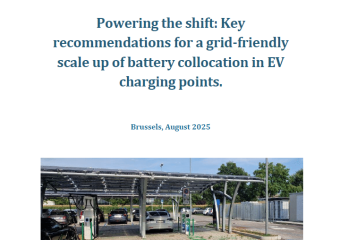CEDEC, E.DSO, Eurelectric and GEODE published a Joint Reaction to the European Parliament’s Own Initiative Report “Electricity Grids: The Backbone of the EU Energy System,” adopted on 19 June.
The associations commend the report’s strong recognition of the essential role that distribution grids play in enabling Europe’s energy transition and ensuring the EU’s long-term decarbonisation, competitiveness, and energy security objectives as well as the critical need to support the massive investment needed in electricity distribution grids. This Report emphasises the relevance of electricity grids and their essential role in the EU’s competitiveness agenda, and it sends a timely and powerful message, particularly as the European Commission prepares its upcoming European Grid Package. It represents long-awaited momentum to mainstream electricity distribution grids in EU energy policymaking the report’s messages while also outlining key priorities and areas for further action, to ensure that Distribution System Operators (DSOs) can deliver the needed investments and services for Europe’s clean energy goals.
Electricity DSOs highlight key priorities reflected in the report:
• The need for stable, clear, and predictable regulatory frameworks that unlock large-scale investment and allow DSOs to plan ahead.
• The importance of streamlining and digitalising permitting procedures, addressing administrative capacity bottlenecks, and ensuring effective, timely approvals.
• Calls for transparent and fair management of grid connection queues, adopting smarter, priority-based systems while equipping DSOs to clear backlogs.
• Support for grid-enhancing technologies, while acknowledging they cannot substitute the need for new grid infrastructure and reinforcement.
• The need for dedicated, accessible funding mechanisms for distribution-level projects, recognising that current EU funding is disproportionately focused on transmission.
• Strengthening supply chains and procurement processes to ensure secure access to critical components, promote innovation, and reduce dependence on suppliers outside the EU.
• Addressing skills shortages in the sector through training, mobility opportunities, and closer cooperation between education and industry.






